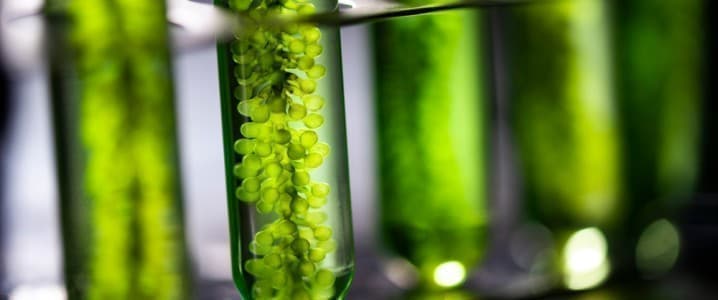Scientists from the University of Cambridge have discovered a new way of understanding cells through ultrafast transient absorption spectroscopy. They used this method to study the behavior of ring-shaped molecules called quinones in photosynthetic cyanobacteria in real-time. The team found that electrons necessary for photosynthesis are being extracted from cells much earlier than previously thought. Quinones can easily accept and give up electrons, which allows them to steal electrons from photosynthesis faster than expected. The discovery is a potential game-changer for biofuels, improving the competitiveness of future biofuels, and developing more efficient crops to address the climate crisis. Researchers have been studying how photosynthesis can be used to generate clean fuel from just sunlight and water by simulating photosynthetic processes. The discovery highlights the importance of investing in scientific research to find new ways of solving energy problems and addressing the climate crisis.
Scientists Find New Way to Extract Energy from Photosynthesis
Exxon Mobil recently abandoned their 14-year algal biofuel project, as they struggled to make the economics of algae biofuels competitive with crude oil. However, scientists may have just discovered a way to generate clean fuels and renewable energy through a new discovery that involves “hacking” an early stage of photosynthesis.
An international team of biologists, chemists, and physicists, led by the University of Cambridge, has succeeded in studying photosynthesis at the molecular level and on an ultrafast timescale. While the process by which plants convert sunlight and water into energy has been known to humans for centuries, the atomic and molecular changes that occur when sunlight is absorbed by plants are not well understood.
The team overcame the challenge of tracking the process, which is too fast for many conventional monitoring systems, by developing a technique that uses ultrafast spectroscopy techniques with laser pulses aimed at samples of living cells to monitor rapid cellular changes.
Algae have clear advantages over biofuel crops, with high fat content up to 80% for some cultivars and more diverse than crops like corn. However, their production is not yet competitive with crude oil prices. But this discovery could offer a new lifeline to companies like Exxon and players in renewable energy.
The new discovery could help extract energy from the photosynthesis process and generate clean fuels and renewable energy. While Exxon Mobil and other big oil affiliate groups have struggled to make the economics of algae biofuels competitive with crude oil, this new discovery by scientists could change the game.
This breakthrough shows the importance of investing in scientific research to discover new ways to solve energy problems. With the increasing demand for renewable energy and the growing concern over climate change, this new discovery could lead to a more sustainable future.
Scientists Discover Faster Method of Extracting Electrons from Photosynthesis
Scientists have discovered a new tool for understanding cells that could have far-reaching implications for a range of applications, from biofuels to developing more efficient crops. The team of biologists, chemists, and physicists, led by the University of Cambridge, has used ultrafast transient absorption spectroscopy to study how ring-shaped molecules called quinones behave in photosynthetic cyanobacteria in real-time.
The team’s key finding is that the electrons necessary for photosynthesis are being extracted from cells much earlier than previously thought. The scientists found that quinones can easily accept and give up electrons, and they are able to ‘steal’ electrons from photosynthesis much faster than expected. According to study author Tomi Baikie, the lasers used take “pictures” of photosynthetic cells a million times faster than an iPhone, allowing the team to understand how ring-shaped molecules behave in real-time.
This breakthrough discovery could have significant implications for the development of biofuels and improving the competitiveness of future biofuels. The team’s findings could also lead to more efficient crops, which could help address the climate crisis. Researchers have been studying how photosynthesis can be used to generate clean fuel from just sunlight and water by simulating photosynthetic processes.
The team’s work is a beautiful demonstration of how basic science and interdisciplinary research can change the target posts for technology. Achieving this breakthrough required time and investment in basic science, but it has opened up many exciting possibilities for the future. If scientists can replicate the method of extracting electrons from photosynthesis, it could lead to the development of self-generating and self-repairing catalysts that cannot be replicated by artificial systems.
This discovery is a potential game-changer with far-reaching implications for a range of applications. It shows the importance of investing in scientific research to find new ways of solving energy problems and addressing the climate crisis.
Don’t miss interesting posts on Famousbio
